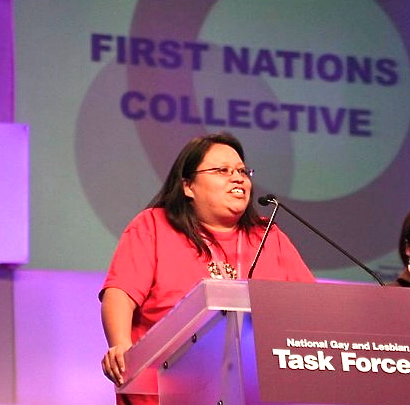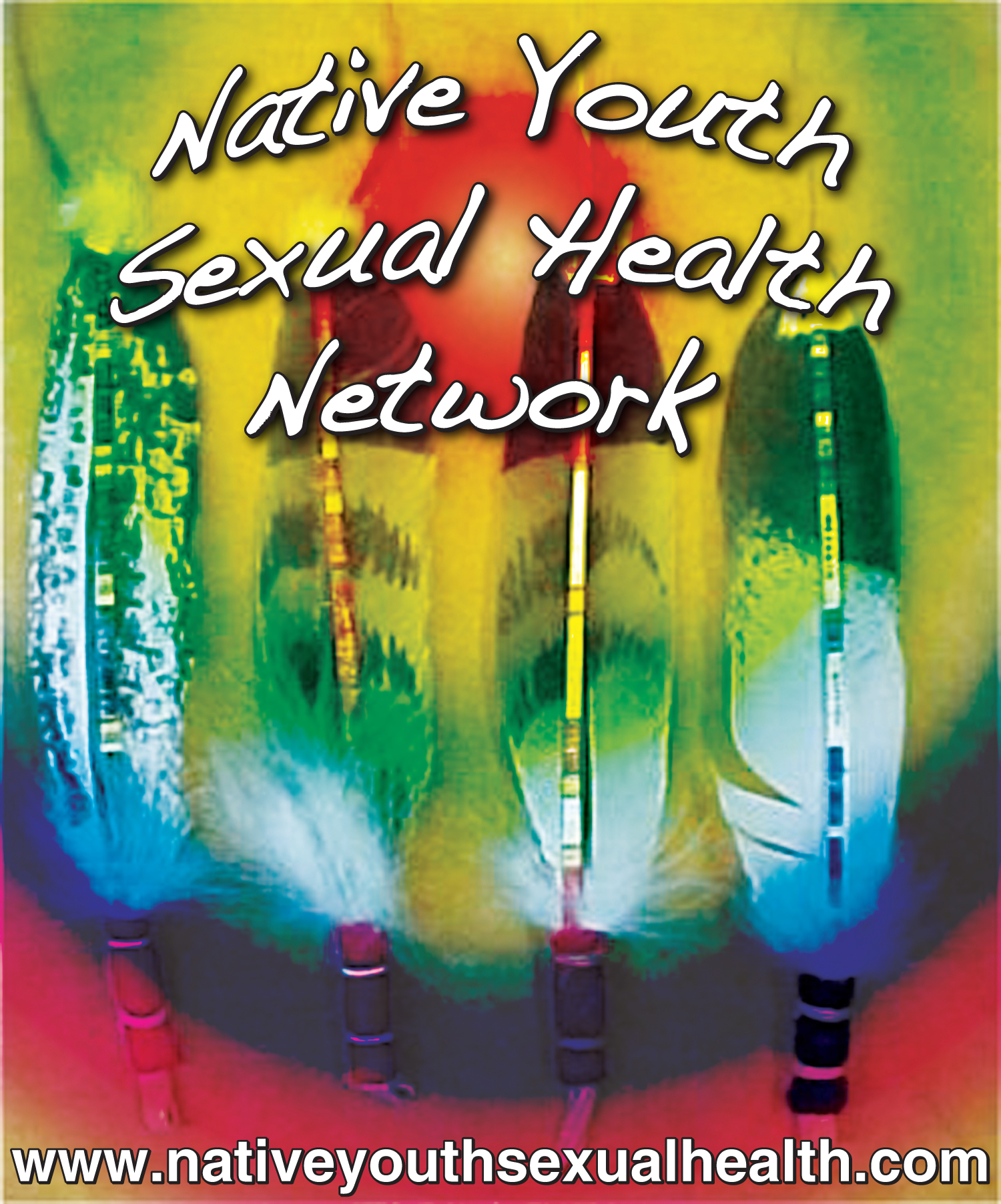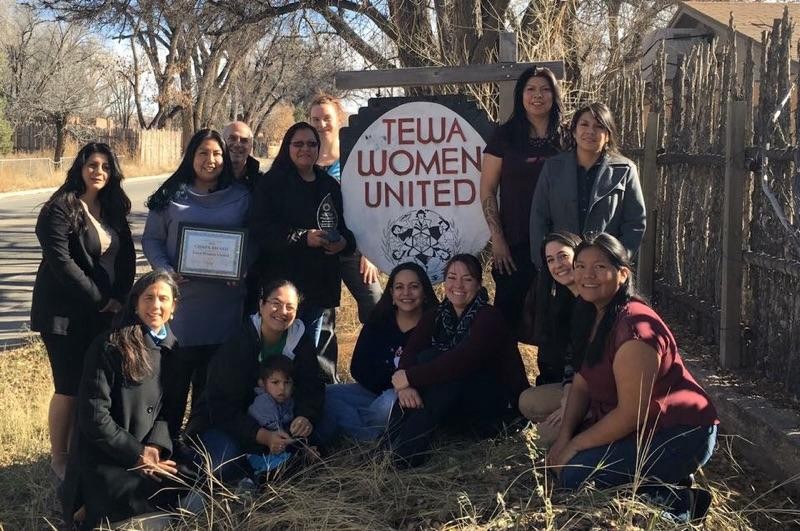Thanking Native American Leaders In Reproductive Rights
July 24, 2016 (originally published on Medium)

Beaded condom medallion art developed by Erin Marie Konsmo, Native Youth Sexual Health Network
A few months ago, Quixote Foundation set out to make a few unsolicited "Thank You Note" grants to organizations promoting reproductive health, rights and justice in Native American and Indigenous communities. We’d become aware that Native communities — especially those centered in reservations — are often bypassed for funding, despite doing incredibly thoughtful work merging women’s health, racial justice and environmental sustainability. But we needed help from someone with both expertise and standing to identify Native organizations whose goals we share and who might welcome some unexpected funding.

Coya White Hat-Artichoker (PC: MIN Enterprises Photography)
Enter Coya White Hat-Artichoker. Lenore Hanisch had met Coya at Take Root and Civil Liberties and Public Policy, for which conferences both women had ventured deep into “red state perspectives.” Coya was brilliant, direct and funny. She offered knowledge across a complex range of issues. Eventually, we asked Coya if we could retain her as a consultant to help us place some grants. She graciously agreed.
Coya quickly surfaced a critical issue we wouldn’t have seen on our own: the relationships between Native Nations and the U.S. government directly affect how reproductive health programs develop, or whether or not they even exist.
Many nations have Indian Health Service (IHS) clinics or hospitals, located on reservations. Tribal members are eligible for services at most IHS facilities. Native folks enrolled in a tribe are exempt from Affordable Care Act insurance requirements, so most don’t buy health insurance or interact with the non-Native health care system. Enrolled Natives who don’t live on a reservation will often wait to seek care until they can return.
This scenario also means most Native Americans seeking reproductive health care have access only to what their local IHS provides — and few IHS programs do work related to reproductive health. Funding for health services is politically driven, and U.S. policy has to change on a national level in order to improve this situation within IHS.
For this reason, Coya focused on three organizations working to reform both the federal government and IHS so that Native reproductive health services are provided adequately. The organizations grew from grassroots involvement and sustain intrinsic ties to their communities and to government entities. Their strategies range from direct health care to social media campaigns to cultural preservation, all related to reproductive justice.
Quixote Foundation has awarded $25,000, unsolicited, unrestricted grants to thank these organizations for their work:

Native Youth Sexual Health Network is run and advised by Native youth. The network is active in raising awareness in Canada and the United States around Missing and Murdered Indigenous Women; developing relevant ways to talk about healthy sexuality as a cultural reclamation work; and building cultural support for Two Spirit communities.
NYSHN does exciting intersectional work in Canada and the United States, recognizing the struggles faced by Native nations across the border and working hard to support an indigenous identity.
Since 1985, the Native American Women’s Health Education Resource Center has worked just outside the Yankton Sioux Reservation in South Dakota, running several programs for young people, a language revitalization effort, a radio station, and a shelter; and they have advocated strongly for better service provision from Indian Health Service.

From Native American Women’s Health Education Resource Center on Facebook
A notable example is the Center’s successful campaign for better access through IHS to the emergency contraceptive Plan B. The resource center is well established and connected throughout Indian Country, and within the federal systems that are necessary to create change.
Tewa Women United began as a group of women meeting to talk about issues affecting their communities and has grown into an organization with deeply-held traditional values, working across a multitude of issues. They talk about woman as “the first environment” and emphasize the importance of health and well-being for pregnant women and their children. They train doulas to provide better care and a birth process characterized by autonomy, dignity, respect and empowerment. Tewa Women United also works with outside agencies to provide services to low-income women. Recognizing indigeneity across the continent, they have built strategic partnerships with organizations, such as California Latinas for Reproductive Justice and Young Women United.

Quixote Foundation appreciates all the work these vibrant organizations are able to do. We’re also grateful to Coya. Without her style of inquiry, and her ability to understand reproductive rights work in a context and spectrum of Indigenous communities, priorities and cultures, we might never have had a chance to say “Thank you.”
—written by Keneta Anderson for Quixote Foundation